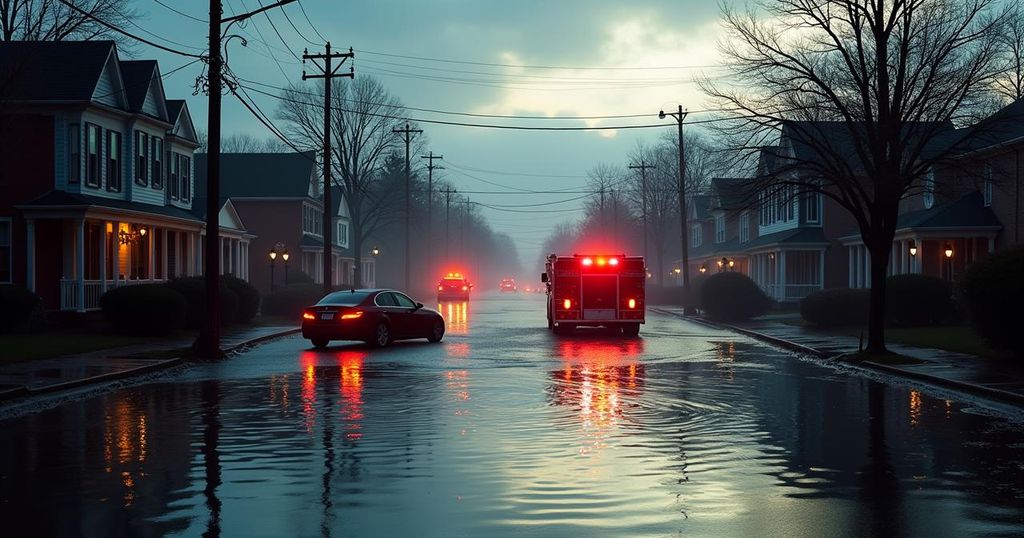The Impacts of Hurricane Helene on North Carolina: Communication Struggles Amidst Devastation

Hurricane Helene has caused catastrophic flooding in western North Carolina, particularly affecting Asheville and surrounding towns. With communication disrupted, residents struggle to locate loved ones and access necessary resources. The storm has resulted in at least 61 deaths across five states, with ongoing search and rescue efforts facing obstacles due to blocked roads. The community is left grappling with devastation and uncertainty about its future.
A clear and cool Sunday in the North Carolina mountains starkly contrasted with the devastation left in the wake of Hurricane Helene, which had made landfall in Florida as a powerful Category 4 storm before spiraling through several states. The region is now grappling with catastrophic flooding, rendering communication with the outside world a significant challenge due to spotty cellphone and internet signals. As residents attempt to reach out for help, many have resorted to social media to locate loved ones and share their predicaments. Buncombe County, which encompasses Asheville, has recorded over 1,000 inquiries from residents seeking information about family and friends, although local officials anticipate these numbers will decline as communication systems are restored. Tragically, the storm has claimed at least 61 lives across five states, with South Carolina suffering the highest toll at 22 fatalities. In North Carolina alone, the death toll stands at 10, with expectations that this figure could rise due to ongoing search and rescue operations that have faced formidable obstacles, including closed roads and widely flooded areas. Fire Chief Anthony Penland described Swannanoa, a town just outside of Asheville, as “completely devastated,” with entire neighborhoods reportedly obliterated. As flood alerts continue and more than 400 roads remain blocked, residents in affected areas are in dire need of assistance as resources are strained. In observing the rivers overflowing their banks and streets transformed into waterways, the community is left to ponder the long-term impacts of this disaster. The remnants of Hurricane Helene are expected to bring additional rainfall to the region, which could exacerbate the challenges already faced by rescue crews and local authorities. In light of the extensive destruction, some residents reflect on their memories tied to the locations they once cherished, voicing hopes for the revival of their community amidst the devastation.
The article discusses the aftermath of Hurricane Helene, which resulted in devastating flooding throughout North Carolina, particularly affecting small towns such as Asheville and Swannanoa. The storm’s impact, marked by loss of life and widespread destruction of infrastructure, has impeded communication networks, complicating residents’ efforts to contact loved ones and access resources. The ongoing search-and-rescue missions face significant challenges due to blocked roads and hazardous conditions in the wake of the flood. This situation has sparked concerns about the long-term consequences for the community’s economy and cultural identity, as devastated areas battle for recovery.
In summary, Hurricane Helene has inflicted significant damage upon the communities in western North Carolina, raising alarming concerns regarding communication and rescue efforts. Although the storm has led to tragic fatalities and extensive infrastructure damage, local authorities remain hopeful for the restoration of connectivity and support for those affected. The resilience of the community will be essential as residents begin to assess their losses and the possibility of recovery from this catastrophic event.
Original Source: www.washingtonpost.com








